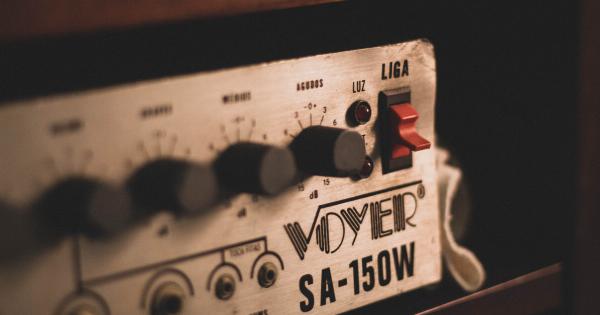Dementia is a condition characterized by a decline in cognitive function, including memory loss, personality changes, and impaired reasoning.
It can be caused by various factors, including Alzheimer’s disease, Parkinson’s disease, and Huntington’s disease. While traditional therapies and medications can help manage symptoms, many people are turning to alternative therapies to complement their treatment. Here are some alternative therapies that may help relieve dementia symptoms:.
1. Music Therapy
Music therapy involves using music to improve cognitive function and help individuals with dementia express themselves. It has been found to lower anxiety and agitation in people with dementia and improve their mood.
Music therapy can be tailored to the individual’s preferences and can be used in group or individual settings.
2. Art Therapy
Art therapy involves using art as a means of expression and communication. It can help individuals with dementia connect with their emotions and express themselves in nonverbal ways.
Art therapy has been found to improve mood, cognitive function, and quality of life in individuals with dementia.
3. Pet Therapy
Pet therapy involves interacting with animals as a means of reducing stress and agitation. It can help individuals with dementia feel more relaxed and connected to others.
Pet therapy can involve visits from therapy animals, such as dogs or cats, or having a pet as a companion.
4. Dance Therapy
Dance therapy involves using movement to improve cognitive function and reduce agitation in individuals with dementia. It can help individuals express themselves and connect with others in a fun and engaging way.
Dance therapy can be tailored to the individual’s abilities and can be used in group or individual settings.
5. Aromatherapy
Aromatherapy involves using essential oils to promote relaxation and improve mood. It can help reduce anxiety and stress in individuals with dementia.
Aromatherapy can be used in a diffuser or applied directly to the skin, but caregivers should be cautious and avoid using oils that may cause allergic reactions.
6. Massage Therapy
Massage therapy involves using touch and pressure to promote relaxation and reduce anxiety. It can be helpful for individuals with dementia who are experiencing muscle tension or pain.
Massage therapy can be tailored to the individual’s preferences and needs.
7. Acupuncture
Acupuncture involves inserting thin needles into specific points on the body to promote healing and reduce pain. It has been found to be effective in reducing depression and anxiety in individuals with dementia.
Acupuncture should only be performed by a licensed practitioner.
8. Mindfulness Meditation
Mindfulness meditation involves focusing on the present moment and accepting thoughts and emotions without judgment. It can help reduce anxiety and stress in individuals with dementia and improve their quality of life.
Mindfulness meditation can be practiced in a group or individual setting.
9. Exercise Therapy
Exercise therapy involves using physical activity to improve cognitive function and reduce agitation in individuals with dementia. It can help improve balance, mobility, and overall health.
Exercise therapy can be tailored to the individual’s abilities and can include activities such as walking, yoga, or tai chi.
10. Cognitive Stimulation Therapy
Cognitive stimulation therapy involves engaging individuals with dementia in structured activities that are designed to improve cognitive function and promote social interaction.
It can help delay the onset of cognitive decline and improve quality of life. Cognitive stimulation therapy can be tailored to the individual’s abilities and interests.
While alternative therapies can be helpful for individuals with dementia, it is important to consult with a healthcare provider before starting any new treatment.
They can help determine the best approach for each individual and ensure that the therapy does not interfere with other medications or treatments.





























